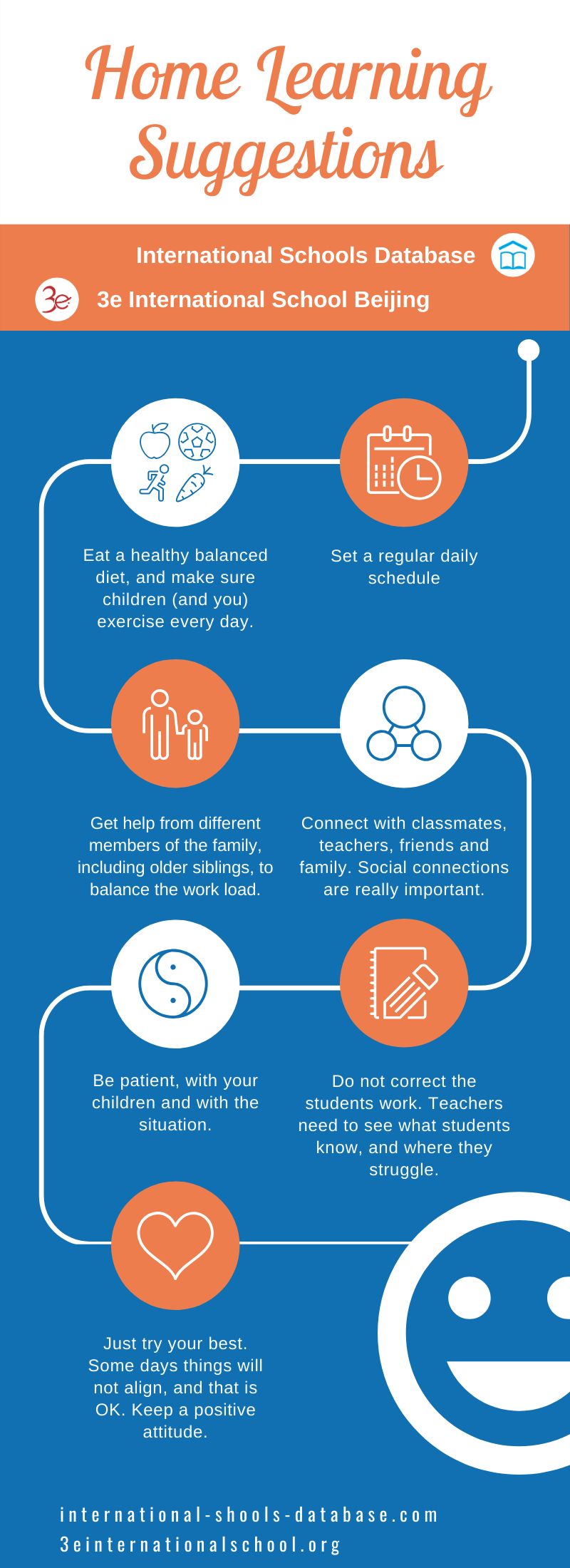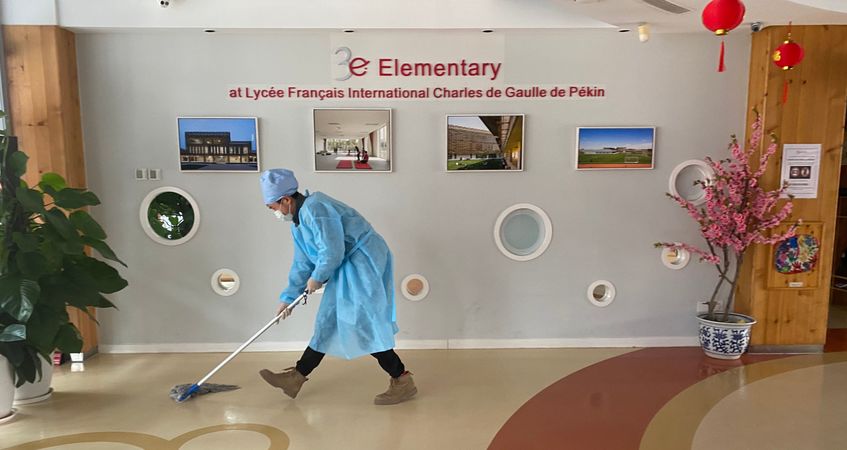Transition to Home Learning
As the first country affected at the epicentre of the coronavirus crisis, schools across China had only a few days to prepare and implement home learning programs, in the wake of the unprecedented nationwide government decision to close all schools.
Even though initially it was expected school closures would only be short term, it is now clear in retrospect that schools in China, and many more countries around the world, needed to close for many months.
Advice for Parents
The transition to Home Learning presents a difficult challenge for educators and teachers, but it can also be a difficult transition for children and parents, many of whom would have never experienced home learning before.
3e Parent, Joanne O’Connor, who was on holiday in Australia during the Chinese New Year, when the decision to close schools in China was announced, had to supervise home learning for her daughters Lauren (in Grade 1), and Caitlin (in Grade 3). Joanne shared her families’ experience:
“Although the first week was a bit of a shock, once we decided upon a routine for the children, and settled into the process, the children both were really resilient and adapted quickly to their new learning approach. They also particularly enjoyed group WeChat and Zoom calls with their teachers and classmates to maintain a connection with them. We had been home learning in Australia for around two months when friends in London, Netherlands and Australia had to start preparing for the reality that their schools would also soon close, so it was really heart-warming that I was able to give them experienced advice to allay some of their fears and stress during this challenging time for everyone.”
Home Learning suggestions
Joanne provides some helpful home learning suggestions for any other families around the world:

- Try to set a regular daily schedule.
- Eat a healthy balanced diet, low in sugar and treats.
- Make sure children exercise every day to release their energy and help them focus during quieter times. It’s also important for Parents to look after themselves too given this is a period of heightened stress regarding home learning and maybe work related uncertainty.
- If possible, sometimes request different members of the family, or older siblings, to help support home learning. Especially for older siblings, this process can help to reinforce learning concepts for them, and help strengthen sibling connections.
- Connect with classmates, friends and family. Social connections are really important as part of usual school life.
- Connect regularly with teachers and continue to give home learning feedback.
- Give children time and patience to learn a new concept.
- Try not to correct any incorrect work of the students. Teachers are continually gauging the effectiveness of their online teaching methods, including children’s understanding and knowledge levels.
- Whilst this period can be an inconvenience, it can also be an unexpected opportunity to spend quality time with your children, create lasting memories, and understand their learning styles and abilities.
- Parents and children should always remember to just try their best with home learning activities. Some days things will all align and other days they may not, so all we can do it try to keep a positive attitude, support our children as best we can.
As schools in China are now slowly transitioning back to re-opening, we unite with other educators, teachers, parents, children and all those affected by school closures around the world, and hope the effects of the coronavirus epidemic will resolve as quickly as possible.



